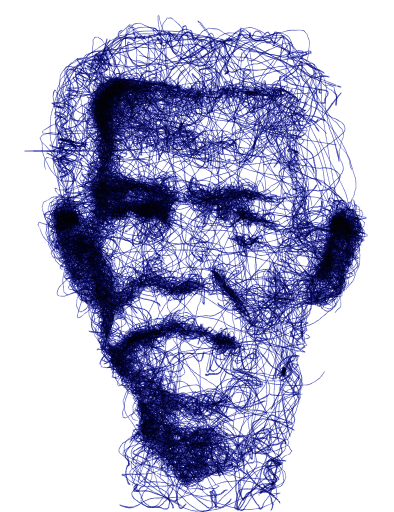Biography de Krom Ngoy, poet and musician (1865-1936)

Krom Ngoy was a Khmer poet and musician, master of the Kse diev, a one-stringed zither. Born Ouk Ou in Kandal province, he studied in a pagoda before being ordained as a Buddhist monk. He later left monastic life to devote himself to poetry and music, traveling through the countryside and performing educational poems. His fame brought him to the court of King Sisowath, who granted him the honorary title Neak Preah Phee-rom Pheasa Ou. His teachings were published starting in 1930, profoundly influencing Cambodian literature and culture. His work remains a moral and educational reference in Cambodia.
ប្រវត្តិរូបរបស់ក្រម ង៉ុយ កវី និងតន្ត្រីករ
ក្រម ង៉ុយ (1865-1936) គឺជា កវី និង តន្រីដក ខ្មែរ អ្នកជំនាញក្នុង ក្សេ ដៀវ ដែលជាឧបករណ៍តន្រីរសម្លេងមួយខ្សែ។ កើតក្នុងនាម អុក អ៊ូ នៅខេត្តកណ្តាល គាត់បានសិក្សាក្នុងវត្តមុនពេលបួសជាព្រះសង្ឃ។ បន្ទាប់មក គាត់បានចាកឆ្ងាយពីជីវិតព្រះសង្ឃដើម្បីឧទ្ទិសខ្លួនទៅវិចិត្រសិល្បៈនិងតន្រីដក ដើរតាមភូមិភាគ និងច្រៀងកំណាព្យអប់រំ។ ការពេញនិយមរបស់គាត់នាំអោយគាត់ចូលទៅតុលាការរបស់ ព្រះមហាក្សត្រ ស៊ីសុវត្ថិ ដែលបានផ្ដល់បង្រួបបង្រួមថ្លៃថ្នូរជា “នាគ ព្រះភីរោម ភាសា អ៊ូ”។ ការបង្រៀនរបស់គាត់ត្រូវបានផ្សាយពVanaf1930 បានប៉ះពាល់យ៉ាងខ្លាំងដល់អក្សរសិល្បៈនិងវប្បធម៌ខ្មែរ។ ការងាររបស់គាត់នៅតែជាការប្រៀបផ្ទឹមសីលធម៌និងអប់រំនៅកម្ពុជា។
Learn the world as one learns the sea: by getting wet.
A poem-chair
“I adopted the chair, this familiar object, a few decades ago, at a time when I wanted to create art on a human scale in public spaces, while everywhere else people opted for the monumental: it is an object shaped like the body and serves the body. It is difficult to feel exclusive ownership of an object so universally shareable. It is mine when I occupy it, but if I leave it, someone else can claim it as their chair.” Michel Goulet, artist-sculptor
The project Prendre position
Prendre position is a sculpture-installation project of 47 chair-poems to mark the 100th anniversary of the Cité internationale universitaire de Paris. They were installed in a flowered meadow created especially for the occasion by the campus estate service.
This artistic installation was conceived by the Quebecois artist-sculptor Michel Goulet, in collaboration with François Massut, founding director of the collective Poésie is not dead.
Each house on the campus is represented by a chair, thanks to a donation from the Maison des étudiants canadiens and the support of the Labrenne group. Each of the 47 chairs is a unique work.
History and architecture of the house
The Maison du Cambodge was built thanks to a donation from the Royal Government of Cambodia in 1950. Architect Alfred Audoul combined the culture of the founding country with the distinctive features of 1950s neoclassicism.